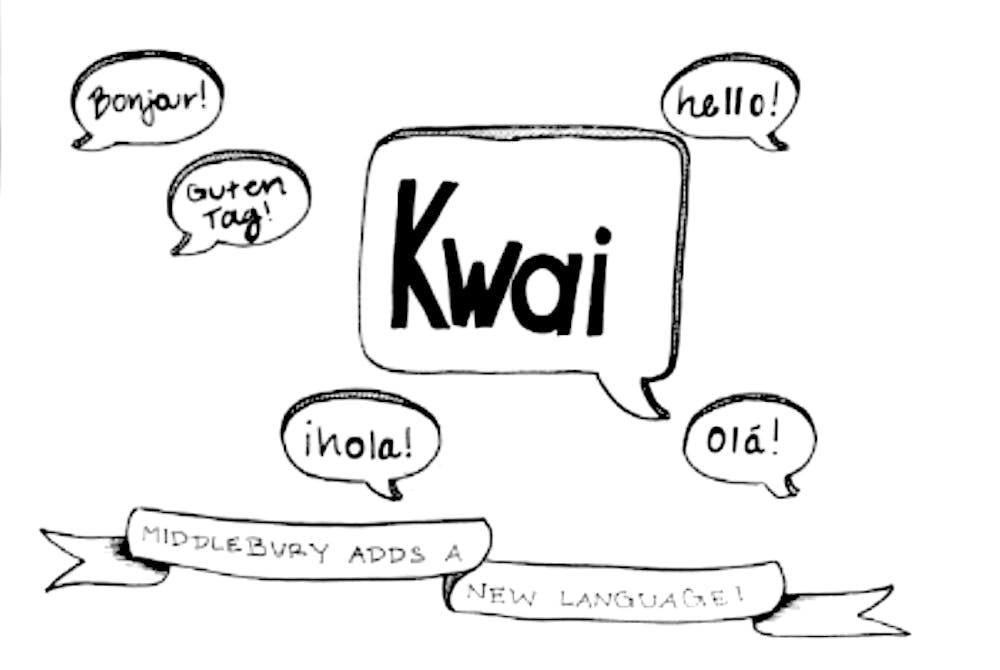Abenaki will be among the offerings at the Middlebury Language Schools this summer. Through a new pilot program, the local Eastern Algonquin language will join Spanish, French, Italian, Hebrew, Chinese, Japanese, Korean, Arabic, German, Portuguese and Russian in the over 100-year-old Language School program.
The Abenaki language, which is native to New England and Quebec, Canada, is considered endangered. Dean of Language Schools Stephen Snyder hopes that the introduction of the language to the schools will allow Middlebury to play a role in preserving and honoring local Abenaki culture.
Jesse Bowman Bruchac will serve as the director of the School of Abenaki. Bruchac is a citizen of the Nulhegan Abenaki Tribe and has spent his life studying and teaching Algonquin languages. He is one of the only remaining fluent speakers of Western Abenaki, according to his curriculum vitae.
Bruchac works tirelessly to revitalize a variety of Eastern Algonquian languages. His efforts include the creation of WesternAbenaki.com, a site that shares podcasts, videos, a dictionary and language lessons. He has also run free summer language immersion programs, runs a Western Abenaki YouTube channel and facilitates a Facebook group for language learners.
Bruchac has lectured and taught at universities, including Dartmouth, Harvard, Princeton and Yale.
Two assistant language instructors will join Bruchac, along with a variety of guest lecturers and other cultural experts. But Bruchac is also working to take advantage of the skills and knowledge of his students so that they can help instruct each other in language and cultural practices.
“In Jesse Bruchac, we have an extraordinarily able and enthusiastic partner who will teach us as much about immersion learning and cultural transmission as the Language Schools may be able to teach him,” Snyder said. “It has the potential to be a beautiful collaboration.”
The School of Abenaki will take advantage of Middlebury’s proximity to Abenaki tribes by supplementing language learning with cultural activities. Activities may include basket making workshops, drumming, storytelling and traditional crafts, as well as a possible visit to a nearby Abenaki cultural center. Students will also learn to play games, some of which are drawn from hundreds of years of gameplay in what Bruchac called “Ndakinna” — the Abenaki name for New England. “Being within Ndakinna, our homeland, will be a tremendously powerful reminder of the connection of our language work to the land that surround us,” he said.
President Laurie Patton envisioned the idea for the new school when Bruchac, accompanied by Abenaki Chief Don Stevens, played the flute and offered an invocation in Abenaki at last spring’s commencement ceremony. Bruchac has also given several lectures at the college. Patton and Bruchac began to discuss plans for the new school this fall.
Because of the program’s status as a pilot school, it will only run two weeks (other language schools run seven or eight weeks) and will have 20 students (other schools which have 50-200). Despite its pilot status, the school’s immersion style and Language Pledge will mirror the other languages programs.
Snyder expects students to come into the school with varying experience with the Abenaki language. “The interaction and peer teaching that happen among speakers of varying levels in the school’s community are some of the great advantages of the Language Schools model,” he said.
Bruchac said that the response from interested students has already been overwhelming. “Within the first day we had many more applicants than spots to fill,” he said.
“Thanks to ongoing revitalization work, and the number of applicants we’ve already had, we can select the very best speakers and strongest candidates from the Abenaki language community,” Bruchac said. He hopes that some of the 20 students may be future teachers who can help the School of Abenaki further grow and develop. He believes the Middlebury Language Pledge will help students and teachers focus on their conversational language skills.
“The Language Schools have always looked up at the global horizon and tried to bring together cultures from all parts of the world, yet we have never engaged with the rich opportunities offered the language, cultural and people who have traditionally inhabited the space we now occupy,” Snyder said.
Bruchac believes that the School of Abenaki will help grow public awareness and contribute to the preservation of Abenaki language and culture.
School of Abenaki joins language schools as a pilot program

Comments



